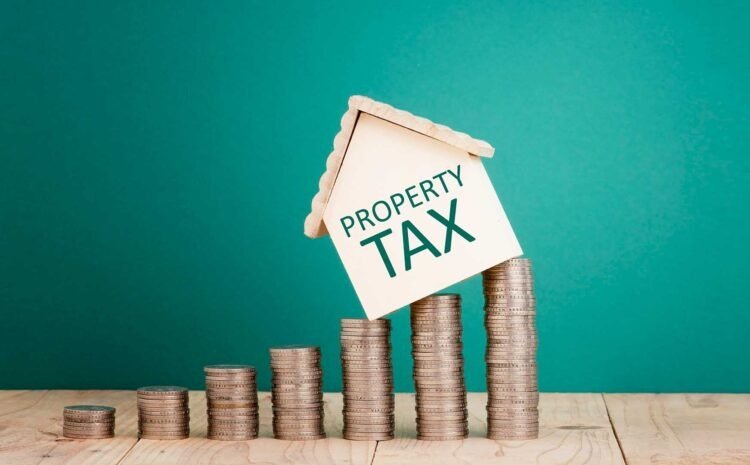
What Are The Property Taxes In Dubai
Dubai’s property market is constantly evolving. Recent Dubai property prices have fluctuated due to demand and availability. Particularly in Downtown Dubai and Dubai Marina, property values are stabilizing. Government initiatives, foreign investment growth, and Expo 2020 have influenced these trends. The pandemic’s lifestyle changes have made buyers want larger homes with more facilities.
Future Dubai property market estimates are optimistic. Its unique location as a corporate hub and tourism destination makes analysts predict steady growth. Market stability is expected as the government tightens property speculation restrictions and increases transparency. These measures should balance the market by attracting long-term investment.
Property Taxes in Dubai
Dubai property demand should diversify. International buyers, especially from Asia and Europe, drive demand for luxury and inexpensive houses. Corporate investments in new business districts and free zones may boost commercial real estate. Dubai’s property market will diversify and grow sustainably.
Unlike many other countries, Dubai has no direct property taxes on homeowners. Instead, property transaction and ownership expenses are studied. Tax-friendly conditions attract investors. Registration, transfer, and service fees dominate property ownership and transactions. Dubai property investors must understand these financial obligations. Transparent and predictable taxes aid financial planning and investment decisions. Dubai’s real estate market is competitive because local and foreign investors don’t pay property taxes.
Submit Your Interest
Value Added Tax VAT
In Dubai VAT was introduced in January 2018 to diversify government revenue and reduce oil dependence. It affects the property industry differently for residential and commercial properties, with different regulations and exemptions. Residential properties are typically VAT-exempt for sales and leases, especially for first-time transactions. Residential investments are more appealing because most buyers and tenants pay no VAT on these transactions. Sales and leases of commercial assets are taxed. This difference affects Dubai’s commercial real estate investment expenses.
VAT complicates Dubai property deals financially. The exclusions raise the price of commercial properties but not residential properties. Developers and investors must consider these costs when planning investments to comply with VAT and optimize tax liabilities. VAT balances the property sector and raises government revenue. Fajar Realty describes property owners’ tax requirements, including calculation and payment so the property owners benefit from no annual property tax.
Registration Fees
Registration fees are vital to Dubai property transactions. Dubai Land Department fees average 4% of property sales. The buyer and seller usually split this cost equally; however, this can be negotiated. Property transfers are legally documented and registered for the protection and clarity of owners. Many steps are needed to pay registration fees. The buyer and seller must agree on selling terms, prepare the sale and purchase agreement, identity documents, and payment evidence, and send these papers to the DLD for verification and transaction processing. The registration fee is paid by bank transfer, credit card, or other means. Registration is completed by the DLD, which issues a buyer-named title deed after payment.
A flawless Dubai property purchase demands efficient registration fee management. Properly preparing and submitting documentation can avoid delays and excessive costs. DLD online platforms and service centers simplify buyer and dealer registration. Property investors and homeowners must understand and observe these rules to preserve their money and avoid legal complications.
Transfer Fees
Dubai property transfers cost 4% of the sale price, split between buyer and seller. The Dubai Land Department (DLD) charges this upon ownership transfer. DLD guidelines may lessen or waive the penalty when immediate family members transfer properties.
Multiple steps are needed to pay transfer fees. The buyer and seller agree on the sale terms and prepare the sale and purchase agreement, the developer’s no-objection certificate, and proof of identity. DLD reviews the documents and sets the transfer charge. Card, bank transfer, and other options are accepted. DLD transfers ownership and delivers the buyer a title deed after payment. Dubai property buyers and investors must comprehend transfer costs and transactions. Submitting all documents speeds up the process and reduces delays. Property transfers are more efficient and transparent with DLD portals and service centers.
Municipality & Service Charges
Dubai service fees in residential and commercial properties cover communal space and service maintenance. Rates vary by property type, location, and services per square foot. Service fees cover standard area maintenance, security, cleaning, landscaping, and utilities. High-end projects featuring pools, gyms, and concierges charge more. With regular payments, property maintainence and community service efficiency improve living and working circumstances. Dubai property management companies must provide comprehensive service charge statements to owners and renters to maintain accountability and proper funding. These taxes fund municipal garbage management, parks, and community facilities. These fees fund public parks, recreation, rubbish management, and urban planning. Sustainable development and administration of Dubai’s urban environment rely on the municipality’s charge.
Exemptions And Incentives
Dubai offers incentives and exemptions to attract investors and enhance property prices. Due to the absence of property taxes, property investors prefer Dubai. Government incentives, including long-term resident visas for property investors, promote Dubai’s real estate market. These initiatives strengthen the city’s economy by encouraging foreign and domestic investment. Specific properties and transactions are exempt. In some cases, property transfers between immediate family members are free. VAT-exempt new homes and first-time residential unit sales minimize buyer costs. These exemptions are part of the government’s real estate promotion and property ownership push.
Dubai government incentives build investor trust and encourage long-term property investment. The government provides laws and financial incentives to keep Dubai a top real estate market and ensure growth and stability.
Government Regulations
Dubai’s strict restrictions increase investor confidence and property market efficiency. The government imposes strict compliance and transparency laws to protect property owners and large investors. Regulatory oversight keeps Dubai’s real estate market stable and growing, making it a safe investment. A robust regulatory structure prevents money laundering and ensures lawful and transparent property transactions. Property management companies and real estate brokers must meet RERA licensing and professional criteria.
Impact on Investors
Dubai’s tax and fee system strongly influences investor decisions and market attractiveness. Without direct property taxes, Dubai attracts individual and company investors. Tax-friendly conditions lower property ownership costs and increase ROI. A simple cost structure boosts investor trust by making investing predictable. No property taxes, low transaction costs, and high rental yields benefit city real estate ventures.
Dubai’s housing market benefits from investor long-term stay visas and favorable borrowing terms. These promote long-term investment and market stability. Service and municipal fees must be considered by property owners. These costs vary by property type and region and must be considered in the investment strategy. All financial commitments must be understood to maximize ROI and investment sustainability. Dubai’s favorable rules and stable structure attract real estate investment, encouraging growth and profit.
Submit Your Interest
Comparison With Other Markets
Dubai’s inexpensive prices and tax-friendly climate distinguish it from other major real estate markets. Dubai has low transaction costs and no direct property taxes, unlike many cities. Diversification and market potential attract foreign investors. Dubai is enticing for its strategic position, world-class infrastructure, and global economic hub status. Dubai has more modern and transparent property markets than other UAE emirates. Dubai offers better rules, market data, and investor safeguards than Sharjah and Abu Dhabi. Market stability and investor trust improve with maturity and openness.
Smart metropolis and environmental innovation distinguish Dubai from regional markets. Dubai attracts global investors with low expenses, high rental rates, and capital appreciation. Strategic initiatives, continuing growth, and investor-friendly policies make the city competitive globally, offering unique real estate investment opportunities.
How Fajar Realty Will Help You In Dubai’s Property Taxes?
Fajar Realty rationally handle Dubai’s unpredictable property market and complex property taxes. The lack of property taxes in Dubai raises home ownership costs. VAT on commercial properties, registration, transfer, servicing, and municipality fees are additional financial obligations. Fajar Realty’s expertise advises clients about these fees and government exemptions or incentives for freehold homes or investment zones. Dubai’s real estate rules are evolving to attract foreign investment, therefore the company’s government regulations and property transaction experience is vital.
Contact Fajar Realty for valuable advisers on Dubai’s tax-friendly environment and strategic incentives that will assist you to make smart decisions and maximize returns.
About CEO

Ms Kiran Khawaja (CEO of Fajar Realty) is one of the top businesswomen in the UAE real estate market. She started her career in 2007 and during her 17+ years career, she has won many national and international prestigious awards including Top Female CEO Award, is the most recent one. Her dedication and consistency in her work made her stand out from her competitors. Due to her diversified and successful career Gulf News and Khaleej Times has covered her success story to motivate youth.